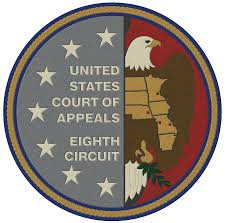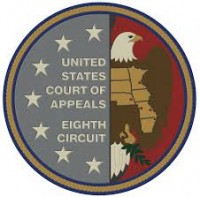 The U.S. Court of Appeals for the Eighth Circuit recently rejected an attempt to rescind a mortgage loan and recover damages under the federal Truth in Lending Act (TILA), affirming the district court’s grant of summary judgment in favor of the mortgagee because the borrowers only tried to cancel their mortgage loan before foreclosure proceedings were initiated, and not thereafter.
The U.S. Court of Appeals for the Eighth Circuit recently rejected an attempt to rescind a mortgage loan and recover damages under the federal Truth in Lending Act (TILA), affirming the district court’s grant of summary judgment in favor of the mortgagee because the borrowers only tried to cancel their mortgage loan before foreclosure proceedings were initiated, and not thereafter.
Therefore, the Court held, the borrowers did not qualify for TILA’s expanded right to rescind in foreclosure arising under 15 U.S.C. § 1635(i)(2).
A copy of the opinion is available at: Link to Opinion.
On September 28, 2009, the borrowers refinanced a $247,000 loan secured by a mortgage on their residence. The same day, the lender disclosed the finance charge, as required by TILA.
On January 21, 2010, the borrowers mailed a notice of rescission to the lender and its successor in interest, who refused to agree to the rescission.
The borrowers defaulted on their payments, which resulted in the publication of multiple notices of mortgage foreclosure sales, starting in March 2010. The lender’s nominee eventually purchased the property at a foreclosure sale in May 2010.
The borrowers sued in November 2010, alleging “that the amount disclosed to them as the finance charge on the loan understated the amount they were actually charged by $944.31,” and seeking an order rescinding the mortgage and damages for failure to comply with TILA.
The district court granted summary judgment in the defendants’ favor for two reasons: (a) the right to rescind expired before borrowers filed suit in November 2010; and (b) the lender accurately disclosed the finance charge when the transaction was consummated, and the borrowers’ right to rescind expired three days business thereafter.
On appeal, the Eighth Circuit began by pointing out that under TILA, the right to rescind a mortgage due to the failure to disclose the finance charge “expires three years after the date of consummation of the transaction.”
However, the Supreme Court of the United States recently clarified in Jesinowki v. Countrywide Home Loans, Inc., 135 S. Ct. 790 (2015) that “a borrower exercises his right of rescission by notifying the creditor of his intention to rescind, whether or not the borrower has filed an action in court.”
Accordingly, the Eighth Circuit concluded that the district court should not have dismissed the case because the borrowers failed to file suit within three years after the transaction was consummated.
However, turning to the second basis for dismissal, the alleged inaccuracy of the finance charge, the Eighth Circuit explained that TILA “tolerates some variation between the amount disclosed as the finance charge and the actual finance charge. According to 15 U.S.C. § 1605(f)(2)(A), a disclosure of the finance charge generally must be treated as accurate in a refinancing transaction like this one if ‘the amount disclosed as the finance charge does not vary from the actual finance charge by more than an amount equal to one-half of one percent of the total amount of credit extended.’ In this case, that amount is $1235.”
The Eighth Circuit further explained, however, that under section 1635(i)(2),“’for the purposes of exercising any rescission rights after the initiation of any judicial or nonjudicial foreclosure process’ … a disclosure of the finance charge must be treated as accurate ‘if the amount disclosed as the finance charge does not vary from the actual finance charge by more than $35 or is greater than the amount required to be disclosed.”
The Court rejected the borrowers’ argument that section 1635(i)(2) applied because “the lender’s disclosure understated the finance charge by $944.31,” reasoning that “[b]ecause the [borrowers] did not attempt to exercise any rescission rights ‘after the initiation’ of a foreclosure process, the tolerance range of § 1635(i)(2) did not apply, and the general rule of § 1605(f)(2) governed instead. The finance charge disclosed by the lender in 2007 did not vary from the actual finance charge by more than one-half of one percent of the total amount financed (i.e., $1235), so it must be treated as accurate. Accordingly, [the borrowers’] right to rescind expired three business days after delivery of the disclosures in September of 2007, see 15 U.S.C. § 1635(a), and their attempted exercise of a right to rescind in January 2010 was properly rejected by the lender.”
The Eighth Circuit also held that the borrowers failed to exercise their “expanded right to rescind arising from § 1635(i)(2) that might have been available after the initiation of foreclosure proceedings in March 2010.”
Accordingly, the district court’s judgment was affirmed.


